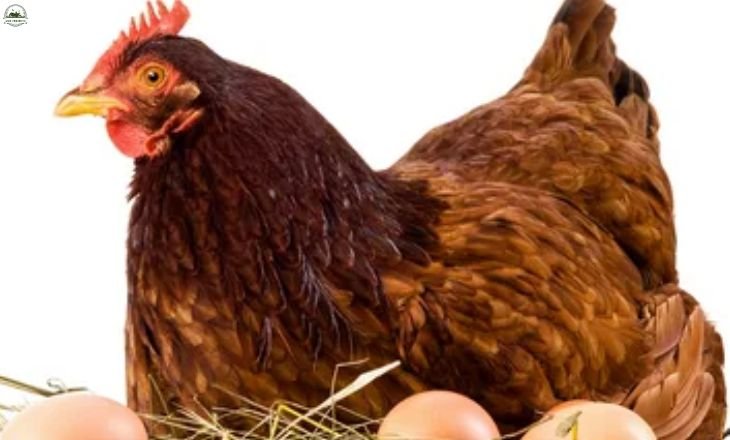Have you ever wondered how many eggs does a chicken lay a day? Chickens are known for laying a lot of eggs. They are important for giving us eggs to eat. What makes chickens lay eggs every day?
Let’s explore the world of chicken productivity and find out how many eggs they lay daily. Get ready to uncover the secrets behind this question!
How Many Eggs Does a Chicken Lay a Day – Feed for laying hens
Chickens can lay eggs almost daily, with some laying up to 300 eggs yearly. B breed, age, and environment can affect how many eggs they lay. This shows how productive chickens are and how important they are for our food supply.
The process of laying eggs is complex and involves different hormones and body systems in the chicken. Each step, from forming the yolk to making the shell, needs energy and nutrients from the hen’s diet.
Understanding this process helps us see how well chickens can reproduce and how they give us nutritious eggs every day.
6 Ways to Make Your Chickens Lay More Eggs
Laying hens need high-quality feed to lay more eggs. Healthy chickens lay eggs that can be hatched.
Please Choose the Right Breeds: Breed, age, and environment can affect how many eggs they lay. This shows how productive chickens are and how important they are for our food supply. The process of laying eggs is complex and involves different hormones and body systems in the chicken.
Give Your Hens A Good Quality Feed: The key to healthy, happy hens lies in the quality of their feed. It’s not just tossing any old grain into the coop and calling it a day. Your feathered friends need a well-balanced diet that provides all the essential nutrients to lay deliciously fresh eggs and maintain their overall well-being.
Investing in a high-quality feed for your hens is like giving them a daily gourmet meal. Not only will they be more productive layers, but they’ll also have stronger immune systems, healthier feathers, and better energy levels. Think of it as fueling your feathery companions’ daily adventures around the coop and beyond!
Minimise Stress: As chickens, we minimize stress by focusing on simple pleasures like scratching for bugs or basking in the sun. We live in the present moment, content with our feathered existence. Humans can learn from our chickens to reduce stress. Instead of worrying about the future, focus on the present. Embrace each moment and let go of unnecessary anxieties.
By adopting a chicken-like mindset, you may enjoy life more fully and appreciate each day as it comes.
Provide Fresh Water: Chickens need clean water to stay healthy. They use water to stay hydrated, regulate body temperature, aid digestion, and stay fit. Without enough water, chickens can get dehydrated and have health problems.
Some think chickens can get enough water from their food, but that’s false. Dirty water can make chickens sick. Always give your chickens clean water to keep them healthy and laying eggs.
Keep The Chicken Coop Clean: Keeping your chicken coop clean is important for the health and happiness of your chickens and to help them lay more eggs. A clean coop prevents diseases, pests, and bad smells. Regular tasks like removing droppings, changing bedding, and cleaning feeders and waterers are necessary to keep the coop hygienic.
A clean coop reduces stress for the chickens and makes them feel safe and content, encouraging consistent egg-laying. It also improves air quality inside the coop, benefiting the chickens and their caretakers.
Provide More Space: As a chicken, having enough space to move freely and peck without feeling cramped is important. This is good for our physical health and mental well-being. More space helps us establish a pecking order, reduces stress, and keeps harmony in our group. Having room to roam lets us search for insects and plants, giving us a varied diet that keeps us healthy.
It also allows us to exercise, strengthening our muscles and improving our fitness. Providing more space for chickens isn’t just about meeting a basic need; it’s about creating an environment where we can thrive and behave naturally, benefiting both individuals and the group.
When Do Hens Start Laying Eggs
Hens usually start laying eggs when they are about 5-6 months old. This is when their bodies are fully developed and ready to lay eggs regularly. The exact timing can vary based on factors like breed, health, and environment. To help hens lay eggs, give them a balanced diet with enough calcium and other nutrients.
They also need about 14 hours of light each day to lay eggs. Stress or changes in their routine can affect egg production, so it’s important to keep them calm and comfortable. Knowing when hens naturally lay eggs can help poultry owners increase egg production and keep their flock healthy. By taking good care of them, you can have fresh eggs from your hens all year round.
How Many Chickens Do You Need For Eggs
Picture waking up each day to collect fresh eggs from your chickens. The number of chickens you require for a regular egg supply depends on factors like your family size and egg usage.
A small family might only need 3-4 chickens for daily eggs. For a more prominent family or if you plan to sell surplus eggs, having 6-8 chickens would provide enough.
Select chicken breeds that are good at laying many eggs.
Egg Production And Breed Differences
Rhode Island Red: The Rhode Island Red chicken is famous for laying lots of brown eggs, up to 300 a year. They can lay eggs all year, no matter the weather.
Leghorn Chicken: The Leghorn chicken is also good at laying eggs, with some laying up to 280 white eggs yearly.
Orpingtons: Orpington chickens are friendly and beautiful birds in various colors like black, buff, and blue. They lay large brown eggs regularly, making them ideal for backyard chicken keepers. They are gentle and calm and get along well with other birds.
Easter Eggers: Easter eggs are unique chickens that lay in blue, green, and pink colors. Each bird’s egg color is a surprise, which adds excitement to collecting eggs. They are ideal for backyard flocks, and their colorful eggs can brighten any kitchen or table.
White Plymouth Rocks: White Plymouth Rocks lay many eggs, are friendly and are suitable for backyard flocks. They lay large brown eggs and can live in various places. They are hardy birds that require little care but provide fresh eggs. They have white feathers with red accents, making them look attractive.
Wyandottes: Wyandotte chickens have pretty feathers and lay eggs regularly. They get along well with other chickens and can handle different weather because of their special rose comb.
Factors Influencing Egg Laying
Nutrition: The quality of the feed affects how well chickens lay eggs. Chickens need a diet with protein, vitamins, and minerals to lay healthy eggs.
Age: A chicken’s age and breed determine how many eggs it can lay. Young chickens, known as pullets, begin laying eggs at 18-24 weeks old when their reproductive systems develop. Older chickens may lay fewer eggs due to hormonal changes and lower egg quality. Different chicken breeds lay varying numbers of eggs, with some laying more eggs for extended periods than others.
Water: Access to clean water is essential for chickens. Water helps chickens digest food and absorb nutrients. Dehydration can reduce egg production, so ensuring chickens always have fresh water for their health and productivity is essential.
Nutrition And Health Impact On Egg Laying
Chickens lay varying amounts of eggs based on their diet and health. A protein, vitamin, and mineral-rich diet is essential for increasing egg production. Providing the proper nutrients is crucial for chickens to lay healthy eggs. Insufficient nutrients or health issues can reduce egg production.
For example, a lack of calcium can result in fragile eggshells or fewer eggs. Stress and health also impact egg-laying. Ensuring chickens have a good diet and proper care can help them lay more eggs consistently and maintain their health.
Effects Of Injuries Or Illnesses
When a chicken is hurt or sick, it may lay fewer eggs. Illnesses like respiratory diseases or infections can stress the chicken and lower egg production. Injuries such as fractures or wounds can also reduce egg laying because the chicken’s body is focused on healing instead of making eggs.
Influence Of Threats On Egg Laying
Threats such as climate change, habitat loss, and predators can alter how animals lay eggs. For instance, increased temperatures can impact the location and quality of egg laying. When there is a higher predator risk, chickens may lay fewer eggs to protect themselves. Pollution and urban areas can disrupt egg-laying locations and food availability for chickens.
These threats not only influence egg laying but also impact the birth rate and population growth of animals. Understanding these dangers is crucial for animal conservation efforts.
Productivity Improvement Techniques
Farmers use unique lights in chicken houses to make hens lay more eggs. Adjusting the light can make hens think it’s daytime longer, which helps increase egg production. This is especially helpful in winter when there’s less sunlight.
Giving hens a good diet with nutrients like calcium, protein, and vitamins also helps them lay more eggs by keeping them healthy.

How Do Chickens Lay Eggs Without A Rooster
Hens lay eggs without needing a rooster. Hormones in the hen’s body control egg development and laying, even without fertilization. Hens have all the necessary organs to lay eggs. Yolk forms in the ovary moves to the oviduct, and gets covered by egg whites and a shell. While a rooster is needed for fertilization, hens can lay unfertilized eggs regularly, showing the complex biological processes in chickens’ reproductive systems.
Anomalies In Egg Laying
When a hen lays two eggs daily instead of one, it’s called double egg laying. This can confuse farmers and harm the hen’s health. Producing double eggs strains the hen’s body, causing health problems. Farmers should watch their hens closely to prevent overworking.
Another strange thing that can happen is when hens lay shell-less eggs. These eggs lack a hard shell and only have the yolk and white inside a membrane. Shell-less eggs are rare and can be caused by stress, poor nutrition, or issues in the egg formation process.
How Do Chickens Lay Eggs
Hens work hard at night to create strong eggshells by adding layers of calcium to protect the yolk. It takes about 20 hours for a hen to make an egg. Nature values protecting life, even in something as small as an eggshell. When you cook with eggs, remember the effort put into making the eggshell.
Yolk Release (1/2 hour)
A young female chick can start new generations by forming yolks when born. Each yolk develops at 18 weeks old, leading to a new life. Nurturing the chosen yolk for ten days is crucial for the chicken’s reproduction.
When the yolk is ready to be released, it marks the start of a new chapter in the chicken’s life.
Initial Egg White Is Created (3 hours):
In the first three hours of development, a protein-rich fluid called albumen forms around the chick embryo. The albumen gives nutrients and protection to the growing chick. Cells in the hen’s oviduct make the egg white by releasing protein molecules that become a gel-like substance. This process cushions and protects the yolk, ensuring the chick’s nourishment and safety as it grows inside the egg.
Egg Shape Is Formed (1 hour)
As the egg travels through the oviduct, it gets covered with egg white, membranes, and a hard shell. The oval shape of the egg is strong and protects the developing chick inside. This shape is not random but serves a specific purpose in nature. Because of this adaptation, birds have evolved to reproduce successfully for millions of years.
Understanding how the egg shape forms through a complex process shows the beauty and sophistication of nature.
Egg Shells Are Formed (20 hours)
Hens need around 20 hours to create eggshells. They use calcium carbonate crystals, proteins, and minerals. Layers are added as the egg moves through the hen. The shell’s color comes from pigments in the hen’s food. The hen’s body makes the shell firm to protect the embryo and allow air exchange.

Conclusion
Understanding the natural egg-laying cycles of chickens can help us appreciate the incredible process through which these birds produce such a valuable food source. While the average chicken lays about one egg per day, this rate can vary depending on breed, age, and environmental factors.
Providing chickens with proper care, nutrition, and living conditions is important to ensure optimal egg production. By learning more about the habits and needs of chickens, we can support their well-being and enjoy a sustainable supply of fresh eggs.
Let’s continue to educate ourselves about these fascinating creatures and show them the respect they deserve as vital contributors to our food system.
Frequently Asked Question
How Many Eggs Will 4 Chickens Lay In A Week?
4 chickens can lay around 20-28 eggs per week.
At What Age Do Chickens Stop Laying Eggs?
Chickens typically stop laying eggs between 3 to 5 years old.
How Fast Do Chickens Grow?
Chickens typically reach their full size within 6 months to a year, depending on the breed.

